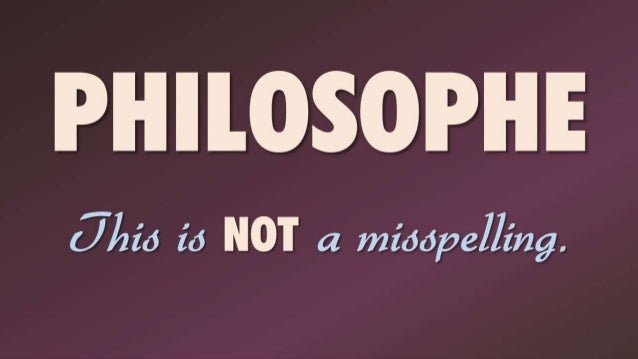CA.10.2. Content Standard: World History, Culture, and Geography
Students compare and contrast the Glorious Revolution of England, the American Revolution, and the French Revolution and their enduring effects worldwide on the political expectations for self-government and individual liberty.
10.2.4. Performance Standard:
Explain how the ideology of the French Revolution led France to develop from constitutional monarchy to democratic despotism to the Napoleonic empire.
10.2.5. Performance Standard:
Discuss how nationalism spread across Europe with Napoleon but was repressed for a generation under the Congress of Vienna and Concert of Europe until the Revolutions of 1848.
________________________________________________________________________
Objective:
Given an historical background on the social and political atmosphere in France in the 1700's, students will be able to list and explain the connections, casual and otherwise, between particular historical events and larger social, economic, and political trends and developments in France, which led to the French Revolution
Rationale:
The effects of the Philosophes was particularly felt in France where most of them did their "Philosophizing," understanding the effects on the actual political and social situation, as well as understanding what the effect of the American Revolution had, will bring these two events in clear influence and connection.
Evidence:
Being able to identify and connect various events, philosophies, and changes within France will demonstrate a students ability to connect causes and outcomes of many of the revolutionary events in Europe.
___________________________________________________________________________________________________
Today's Essential Question:
What were the social and economic characteristics of France in thelate 1700's that led to a popular uprising agaianst the king and his aristocracy?__________________________________________________________________________________________________
Journal Topic:
The shrinking middle class in America has been a growing phenomenon over the last 20 years. The financial collapse in 2008 brought this point to the forefront, and since 2008 over 90% of the recovered wealth of that collapse has gone to the top 2%. Wage stagnation, stuck minimum wage, lack of quality jobs with growth potential, 2 income familes becoming a must to survive, student debt at an all-time high, etc, have all led to populist movements gaining steam.
(populist - a member or adherent of a political party seeking to represent the interests of ordinary people.)
France in the 1700's was still a society based on a feudalistic past, with an established aristocracy that received all the benefits of a society filled with skilled workers and artisans. The "middle class" of France was getting sick and tired of a system that seemed to benefit the top a their expense.
What social policies should be put in place to address these issues: (pick one to write on)
1. Wages (should there be a minimum wage? if so what should it be, and should it be localized to the cost of living of where it is applied?)
2. College costs (should it be free? if so who and how is it paid for? if there is a cost, how would student loans work?)
3. CEO pay? should there be a limit or let the market /company board decide? Should there be a limit on the % higher the CEO pay is to the average professional employee in the company?
4. Rent control? should there be a limit of rent?
Bernie Sanders on these issues ( here )
_________________________________________________________________________________
First we will watch a quick Summary of the entire Revolution - ( here )
Once we finish the Video we will start the presentation on- History of the French Revolution
Once that is finished we will introduce the - Declaration of the Rights of Man - writing assignment A copy of the Declaration Copy of the actual Declaration of the Rights of Man
Chapter 3 Section 1 finished by Wednesday, Chapter 3 Section 2 finished by Friday
There will be no assignments over break
The shrinking middle class in America has been a growing phenomenon over the last 20 years. The financial collapse in 2008 brought this point to the forefront, and since 2008 over 90% of the recovered wealth of that collapse has gone to the top 2%. Wage stagnation, stuck minimum wage, lack of quality jobs with growth potential, 2 income familes becoming a must to survive, student debt at an all-time high, etc, have all led to populist movements gaining steam.
(populist - a member or adherent of a political party seeking to represent the interests of ordinary people.)
France in the 1700's was still a society based on a feudalistic past, with an established aristocracy that received all the benefits of a society filled with skilled workers and artisans. The "middle class" of France was getting sick and tired of a system that seemed to benefit the top a their expense.
What social policies should be put in place to address these issues: (pick one to write on)
1. Wages (should there be a minimum wage? if so what should it be, and should it be localized to the cost of living of where it is applied?)
2. College costs (should it be free? if so who and how is it paid for? if there is a cost, how would student loans work?)
3. CEO pay? should there be a limit or let the market /company board decide? Should there be a limit on the % higher the CEO pay is to the average professional employee in the company?
4. Rent control? should there be a limit of rent?
Bernie Sanders on these issues ( here )
_________________________________________________________________________________
First we will watch a quick Summary of the entire Revolution - ( here )
Once we finish the Video we will start the presentation on- History of the French Revolution
Once that is finished we will introduce the - Declaration of the Rights of Man - writing assignment A copy of the Declaration Copy of the actual Declaration of the Rights of Man
Chapter 3 Section 1 finished by Wednesday, Chapter 3 Section 2 finished by Friday
There will be no assignments over break













